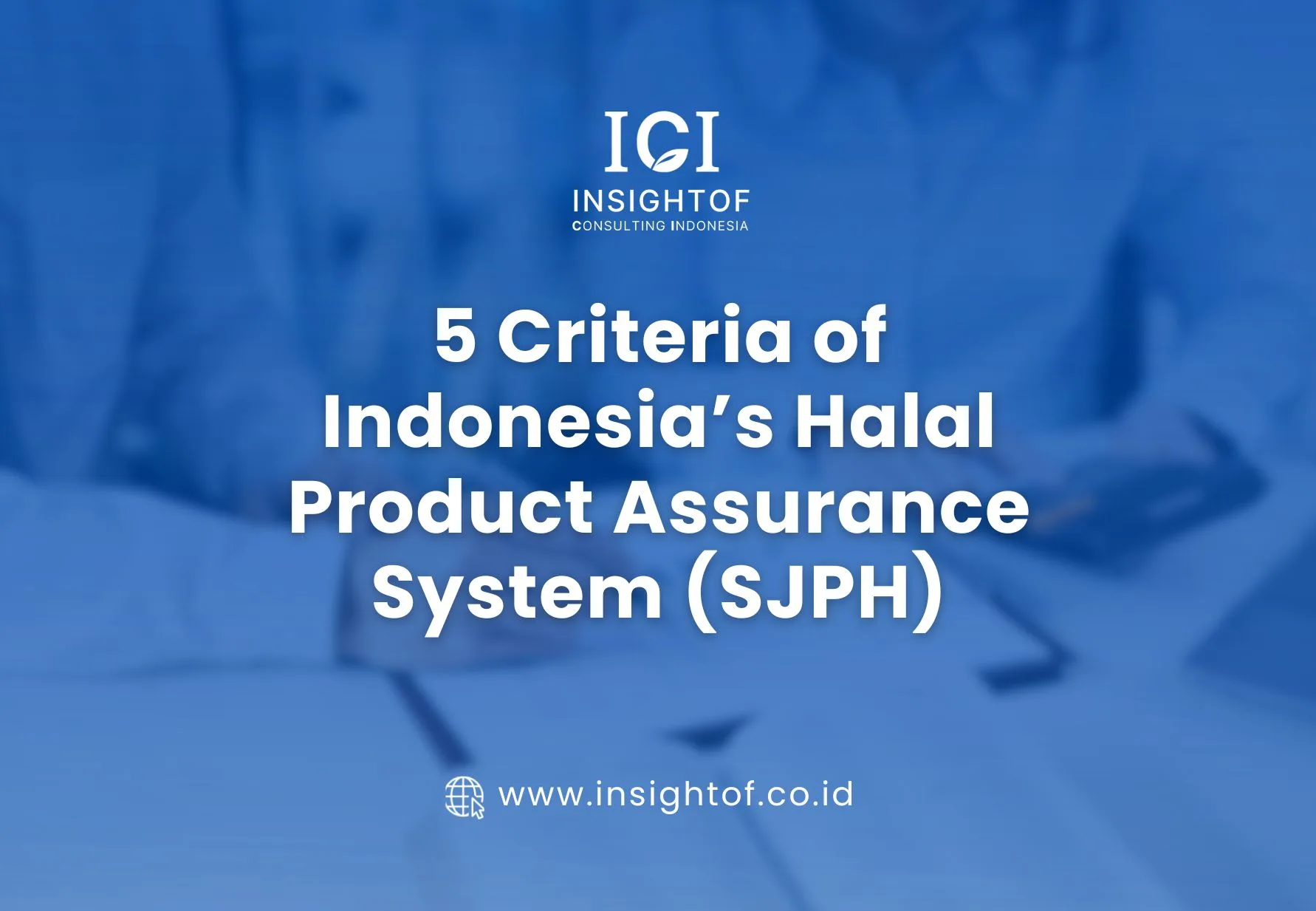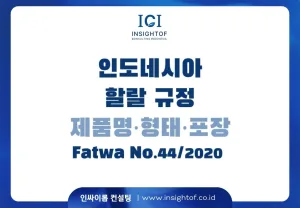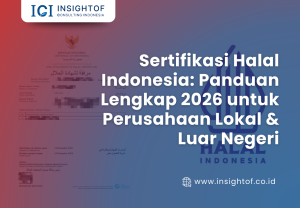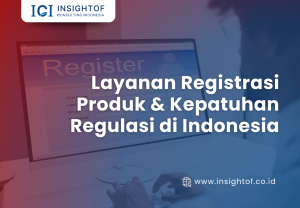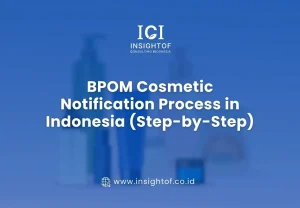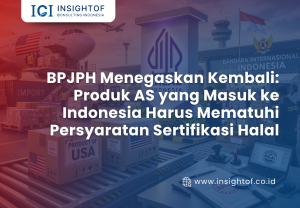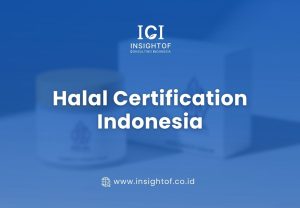For companies operating in or exporting to Indonesia, Halal certification is no longer just a consumer preference—it is a mandatory legal requirement.
To achieve compliance, companies must implement the Halal Product Assurance System (SJPH). Think of SJPH as a Quality Management System (like ISO 9001), but with a specific focus on Halal integrity. It ensures that your product remains Halal not just on the day of the audit, but every single day of production.
Below, we break down the 5 Key Criteria of SJPH into simple, actionable concepts, complete with checklists to help you prepare for your audit.
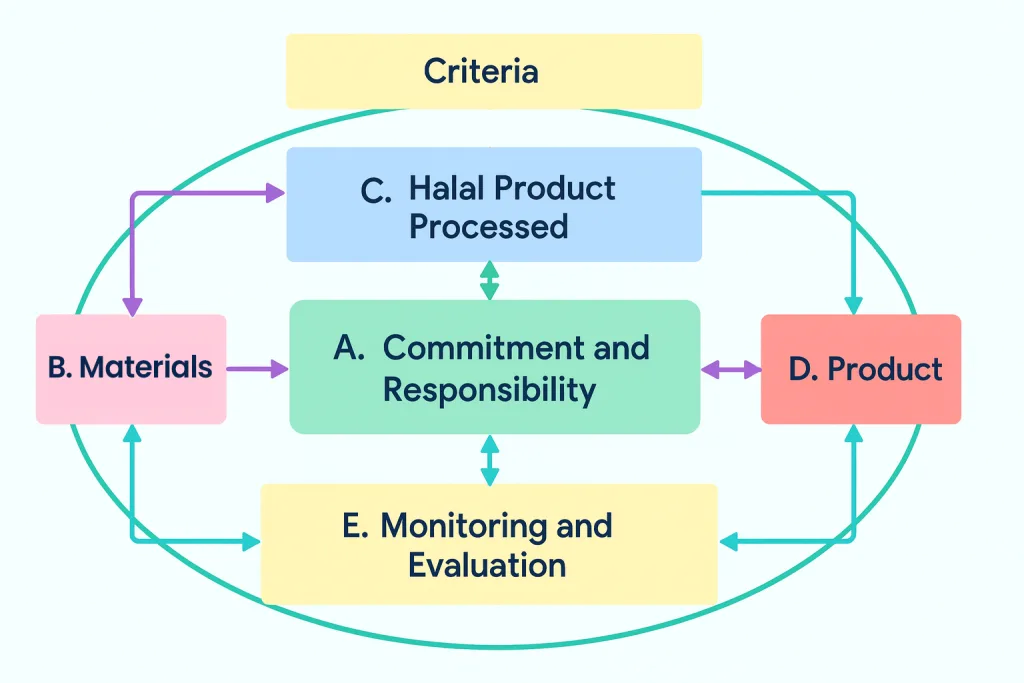
Criterion 1: Commitment & Responsibility (The “Who”)
This criterion establishes the foundation. It requires top management to prove they are serious about Halal compliance.
Why it Matters: Without leadership buy-in, compliance fails. This criterion ensures that the Halal policy is not just a document filed away, but a standard communicated to every employee.
Key Requirements:
- Halal Policy: Top management must sign a written declaration committing to produce only Halal products.
- Halal Management Team: You must form a team responsible for the SJPH.
- The Halal Supervisor: You are legally required to appoint a Halal Supervisor. This person must be a Muslim and possess a competency certificate from a recognized institution.
- Training: All employees involved in the process (purchasing, warehousing, production) must receive internal Halal training at least once a year.
✅ Checklist: Management Commitment
| Requirement | Status | Documents Needed |
| Written Policy | ⬜ | Signed Halal Policy Statement. |
| Dissemination | ⬜ | Evidence of policy communication (posters, emails, briefing minutes). |
| The Team | ⬜ | Appointment letter for the Halal Management Team. |
| Supervisor | ⬜ | Supervisor’s ID, CV, and Halal Competency Certificate. |
| Training | ⬜ | Training materials, attendance lists, and photos of training sessions. |
Criterion 2: Materials Management (The “What”)
This is often the most labor-intensive part of the SJPH. It covers everything that goes into your product and everything that touches it.
Why it Matters: To prevent the use of Haram (forbidden) or Syubhat (doubtful) ingredients.
Key Requirements:
- Approved Materials Only: You can only use materials listed in your Halal document. New suppliers cannot be used without prior approval from the Halal team.
- Supporting Documents: Every material must have a Halal Certificate, a Flow Chart, or a technical statement proving it is free from pork/alcohol.
- Purchasing & Storage: Procurement must verify the Halal status before buying. The warehouse must physically segregate Halal materials from non-Halal materials to prevent cross-contamination.
✅ Checklist: Materials
| Requirement | Status | Documents Needed |
| Material List | ⬜ | Master list of all raw materials, additives, and processing aids. |
| Valid Certificates | ⬜ | Valid Halal Certificates for all critical ingredients. |
| Incoming Check | ⬜ | Logbook/Form for inspecting incoming goods. |
| Storage | ⬜ | Layout map showing segregated storage areas. |
Criterion 3: Halal Product Process (The “How”)
The PPH (Proses Produk Halal) covers the entire journey: from the receiving dock to the shipping truck.
Why it Matters: Even if your ingredients are Halal, your product fails if it touches equipment contaminated by Najis (impurities).
Key Requirements:
- Facility Purity: The production facility must be free from Najis.
- Separation: If your factory also produces non-Halal items, the lines must be clearly separated. Note: Facilities used for pork/dog derivatives can strictly never be shared with Halal lines.
- Washing Procedures: Cleaning methods must be validated. If “severe impurities” (Najis Mughallazah like dog/pig saliva) touch a surface, it requires a specific ritual cleaning (Sertu) using soil/clay, though industrial settings usually avoid this risk entirely by banning such items from the premises.
✅ Checklist: Process & Facilities
| Requirement | Status | Documents Needed |
| Production Flow | ⬜ | A flowchart detailing the entire production process. |
| Dedication | ⬜ | Statement that the facility is free from pork/dog derivatives. |
| Cleaning SOP | ⬜ | Standard Operating Procedure (SOP) for washing equipment. |
| Layout | ⬜ | Factory blueprint highlighting Halal production lines. |
Criterion 4: Product Criteria (The “Result”)
This criterion focuses on the final output—its name, shape, and sensory profile.
Why it Matters: To ensure the product does not mislead consumers or mimic forbidden goods.
Key Requirements:
- Naming: You cannot certify a product with a name associated with Haram items.
- Bad Examples: “Halal Rum,” “Non-Alcoholic Beer,” “Chocolate Bacon.”
- Exception: Traditional names that are clearly food (e.g., “Root Beer” or “Hot Dog” might be exceptions depending on specific fatwas, but generally, caution is advised).
- Shape & Smell: The product must not resemble pigs, dogs, or erotic shapes.
- Ethanol Limits: For final beverages/foods, ethanol residue (from natural fermentation or extraction) must be below 0.5% and not derived from the liquor industry (Khamr).
✅ Checklist: Product
| Requirement | Status | Documents Needed |
| Formula | ⬜ | Product formulation/recipe document. |
| Naming | ⬜ | List of product names (verified against prohibited terms). |
| Ethanol Lab Test | ⬜ | Lab analysis proving ethanol is <0.5% (if applicable). |
| Traceability | ⬜ | Batch coding system that links finished goods back to raw materials. |
Criterion 5: Monitoring & Evaluation (The “Audit”)
You cannot manage what you do not measure. This criterion ensures the system is working continuously.
Why it Matters: It detects errors internally before the external government auditor arrives.
Key Requirements:
- Internal Audit: The company must conduct a self-audit at least once a year.
- Management Review: Top management must review the audit results and budget for any necessary fixes.
- Reporting: Results of the internal audit and any changes to the company structure must be reported to the BPJPH (Halal Product Assurance Organizing Agency).
✅ Checklist: Monitoring
| Requirement | Status | Documents Needed |
| Internal Audit | ⬜ | Completed Internal Audit Report (signed by internal auditor). |
| Management Review | ⬜ | Minutes of the Management Review meeting. |
| Corrective Action | ⬜ | Evidence that previous audit findings have been fixed. |
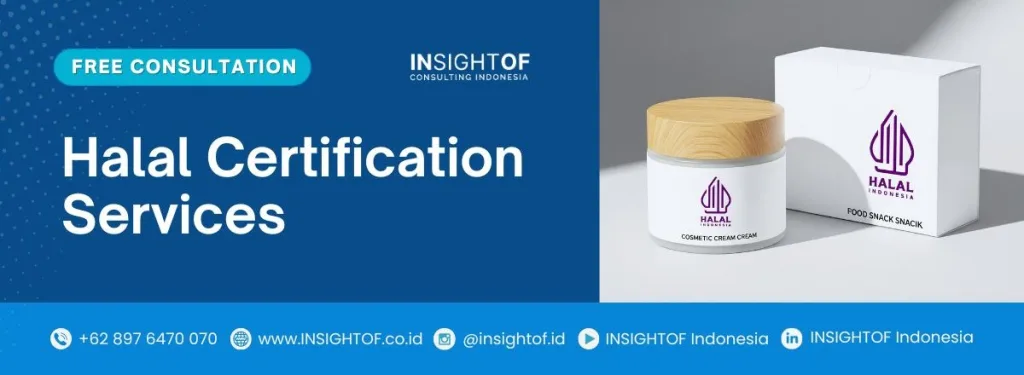
Start Your Halal Certification the Right Way
Do not let unclear regulations delay your business expansion into Indonesia.
With INSIGHTOF Consulting Indonesia, you gain:
✅ Faster approvals
✅ Fewer compliance revisions
✅ Clear roadmaps
✅ Regulatory confidence
Let our consultants evaluate your product and guide you step-by-step through the SJPH certification process.
